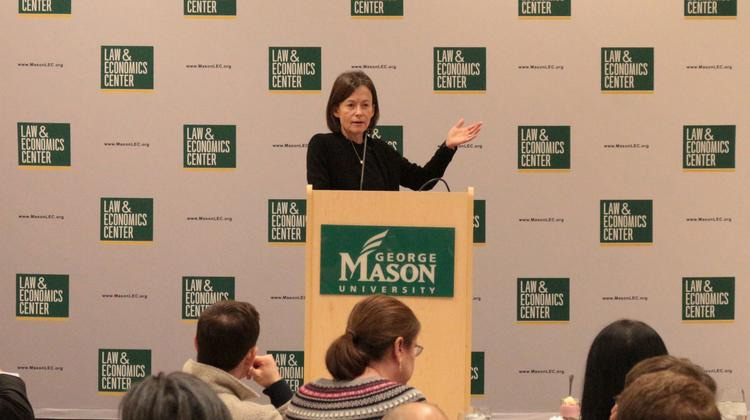Amazon’s VP of HQ2 Workforce Development Keynotes at the Annual Symposium of the Journal of Law, Economics & Policy

The gig is up: Ardine Williams, vice president of HQ2 workforce development and Amazon’s advocate for children playing with robots as a means of turning them into tech-savvy workers, tackled the gig economy in a talk Friday. It’s less about the work-for-hire model and more about the government’s inability to keep pace with changing technology, she said.
Williams spoke at George Mason University’s Annual Symposium of the Journal of Law, Economics & Policy, which focused on the changing nature of work and technology. Williams, who helped her mother do piece work when she was a child, said that “gig work” gives flexibility that most full-time jobs can't offer.
“The conundrum is that our labor and benefits regime isn’t flexible enough to accommodate portable solutions that provide gig workers access to benefits that are still primarily restricted to traditional employment constructs,” Williams said.
The solution? State and federal governments need to step in.
“Attaching benefits to individuals so benefits become portable,” she said. “Making it easier for multiple one-off ‘employers’ to contribute to personal benefits accounts, and equalizing tax treatment is a place to start. And making sure the social safety nets are fully funded.”
Other highlights from her talk:
“Universal income holds some interesting promise for the working poor, but in my opinion doesn’t have legs as a solution to middle-class decline.”
When asked if people can get old working at an Amazon warehouse, Williams said: “I’m 58 and I've worked at a fulfillment center. Is it hard work? Yeah, it's physical work. But it's absolutely doable. It's four 10-hour shifts, typically.”
“Blaming automation for destroying the middle class really insufficiently describes what's actually eroding good middle-class jobs. If automation were widely replacing humans, we'd see a rise in workplace productivity ... but productivity has leveled off.”Source: Washington Business Journal